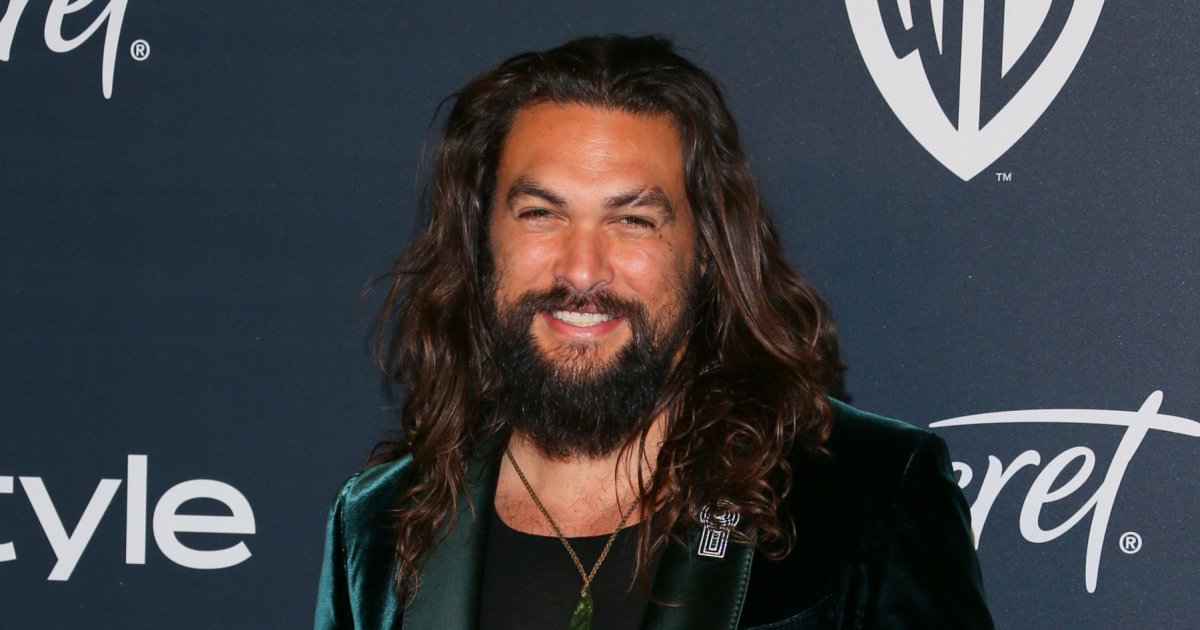Jason Momoa Surprises Young Fan
- Actor Jason Momoa has developed a heartwarming friendship with Danny Sheehan, a 7-year-old Aquaman fan who’s battling brain cancer.
- He recently gifted him a collection of unique gifts, including the character’s legendary trident.
- Brain cancers are the second most common form of cancer in children. Knowing the symptoms and best treatments could save your child’s life.
View this post on Instagram
Momoa’s handwritten note to the boy read, “Can’t wait to ride on some dolphins with you, Danny! Love, Uncle Aquaman.”
Related: 9-Year-Old "Mr. Awesome" Beat Cancer 4 Times: He's the Inspiration We All Need Right Now
“Danny was speechless – which for one so talkative, was a true testament to how surprised he was,” Danny’s mom Natalie told Yahoo. “My reaction was one of sheer delight, surprise, and gratitude. Danny had a rough week, so it was great to see him so lively and excited.”
Momoa first connected with Danny earlier this month after a video of the boy’s ecstatic reaction to a new Aquaman action figure went viral. After learning about his brain cancer battle, Momoa set up a video call so Danny could meet his hero face-to-face.
View this post on Instagram
Understanding Pediatric Brain Cancer
In 2017, Danny was diagnosed with pineoblastoma, an aggressive form of brain cancer. He was four years old at the time.
Brain and spinal cord cancers are the second most form of childhood cancer, accounting for more than 4,000 diagnoses per year a quarter (26%) of all childhood cases. Only leukemia is more common.
Danny’s cancer was diagnosed after he visited the emergency room to treat chronic headaches and occasional vomiting. These are two of the most common symptoms of childhood brain cancers. Other possible symptoms include:
- Headache
- Nausea
- Vomiting
- Crossed eyes or blurred vision
- Balance problems
- Behavior changes
- Seizures
- Drowsiness or even coma
Seizures occur in some patients as a first symptom. Although a seizure does not necessarily guarantee the presence of a brain tumor, pediatric neurologists will often check young seizure patients to rule out potential brain cancer.
While the survival rates for childhood brain tumors are encouraging, it does vary depending on the exact type and nature of the tumor.
“About 3 out of 4 children with brain tumors (all types combined) survive at least 5 years after being diagnosed,” the American Cancer Society’s entry on pediatric brain cancer reads. “But the outlook can vary a great deal based on the type of tumor, where it is, and other factors.”
Treating Childhood Brain Cancer
Thanks to Momoa’s posts, the Sheehan family was able to get in contact with a doctor trialing a new drug for patients like Danny.
According to the American Cancer Society, doctors may prescribe surgery, radiation, chemotherapy, and/or therapy drugs to target the brain tumor and prevent further spread.
The Impact of a Childhood Cancer Diagnosis on the Whole Family Jayne Wexler Shares Her Story
Patients like Danny can find a variety of experts and medical professionals at specialized centers for children and young adults. These experts are familiar with the unique traits of childhood cancers and the best ways to treat it.
Related: Childhood Cancer Didn't Keep Former WWE Wrestler Zack Ryder From Dominating in the Ring
Doctors further advise that parents and families of childhood cancer patients approach treatment with an open and careful mind.
“You may feel that you need to decide quickly, but it's important to give yourself time to absorb the information you have learned,” the entry continues. “It's also very important to ask questions if there is anything you're not sure about.”
For patients like Danny, standard treatments may not be enough. Clinical trials for new drugs are often a promising option for these families and may help the child live longer and recover.
Learn more about SurvivorNet's rigorous medical review process.

